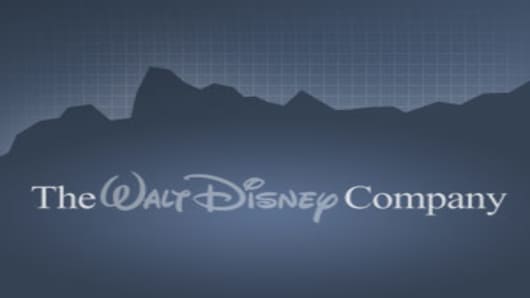Disney can't ignore the reality of the recession and its impact on Disney's business (or its stock price), but CEO Bob Iger insists that the focus is on the long term. The strategy is to create high-quality branded content to leverage across its business divisions and all over the world. Iger says the biggest challenge isn't the economy, but creativity, and keeping its brands thriving.
He dismissed an accusation that the company is having a bit of a creative lull, directing attention towards an upcoming Pixar film, "Up," and a new Disney animated movie. The Disney Channel continues to thrive as do hits like ABC's "Grey's Anatomy," though Iger acknowledged that the network has failed to create equally strong hits in the past few years.
Iger defines entertainment broadly -- it's not just going to the movies or watching TV. He calls social networking entertainment, along with the range of casual and video games. Content people create themselves, and "mash-ups" of professional content also fit the bill. Iger remembered his decision to put home videos on ABC in 1989 for "Americas Funniest Home Videos." "Little did I know we were starting a huge secular trend," he says about the content that now populates everything from YouTube to Facebook.
Iger also spoke about the shift in how people consume entertainment, mentioning a poll about how people think about their computer and televisions. Over 80 percent of those aged between 13 and 24 consider their computer more of an entertainment device than their television. That number dropped to 74 percent for gen-Xers and down to 64 percent for baby boomers.
Disney recognizes the key role computers play in entertainment and wants to be flexible enough to make money in that space. Reflecting on the way piracy decimated the music industry, Iger says the company is better off with a lower price point if it can move content faster and cheaper to the customer.
Looking to build on the value of its brands and address the new ways people consume content, he says the company is considering creating a subscription online movie and TV rental service. The theoretical online video club of Disney's huge library could be accessed via DVD-by mail or download. Iger doesn't expect DVDs to go away, especially because his DVDs are family-oriented. Still, if the average family has 80 DVDs, that means the market is quite saturated, which is precisely why an online rental business could be a great solution.
Like the other CEOs who spoke at this conference Iger is truly optimistic. He says that he's just working from the premise that "people are going to have babies and babies are going to want to be entertained, particularly as they grow to be kids." The fact that Disney's brand is trusted makes them well positioned so the company is going to continue to invest in its brands.
Costs across the board -- making movies, distributing them, making DVDs, etc-- are going to have to come down, Iger acknowledges. But he's unfailingly optimistic that advertising as a business model isn't doomed (despite the 10 percent decline projected for this year). Product messaging has to find its way into the marketplace, he says.
Iger, along with all the other unfailingly optimistic CEOs, have got to be eager for the economy to turn around. The theme park division, advertising, home video and consumer products depend on it.
Questions? Comments? MediaMoney@cnbc.com



